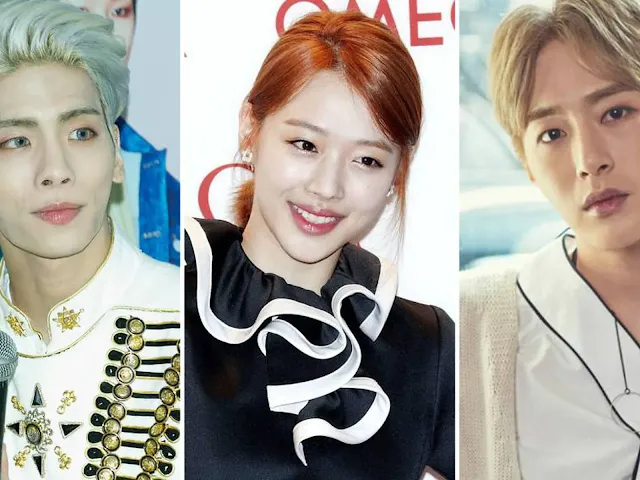K-pop - the dramas that glory hides
K-pop - the dramas that glory hides
The alleged suicide of singer Sulli has reopened the debate about the enormous pressure to which the industry puts its stars and the taboos surrounding mental health and suicide in South Korea.
Two years ago, the suicide of 27-year-old K-pop star Jonghyun caused a huge shock in South Korea. On the day of his funeral, his fellow group SHINnee carried the coffin before the watchful eyes of many other familiar faces from the entertainment world. Sulli, a friend of the deceased, was there. On Monday afternoon, her representative found the body of the 25-year-old singer and actress at her home in Seoul.
Although the circumstances of her death are unknown, the official hypothesis suggests that she would have also taken her own life. Her death has reopened the debate regarding the enormous pressure to which the industry puts her stars, as well as the taboo surrounding mental health and suicide in the Asian country.
K-pop has become one of the symbols of South Korea. What emerged as a new genre has expanded to cover commercial music entirely, in a process that is far from spontaneous: everything around its catchy melodies is the result of careful construction, starting with the artists who sing them. . The method by which the big production companies prepare their talents is known as "the idol farm". Those young people selected in the castigs dedicate between three and five years –in some cases up to ten– to a demanding training program in which their time is divided between physical exercise, the practice of choreography, vocal technique and the study of languages .
Throughout this training, every detail of the future stars is polished through diet, clothing or surgery. The few chosen ones who manage to debut on stage must sign a contract that will give the producers almost absolute control over their personal lives. One of the most common clauses establishes, for example, that artists must remain single. Jonghyun himself suffered in the flesh from him: the discovery of his idyll with another celebrity provoked the angry reaction of his followers.
“Once they have debuted, singers lose any opportunity to have a normal life. The scrutiny is enormous and everything they do has a huge impact, so they have to be perfect, not only for themselves, but also for their groupmates and their company”, explains CedarBough T. Saeji, professor of languages and Eastern Cultures at Indiana University. “This pressure, coupled with constantly appearing on all kinds of platforms with no room for individual expression, can be very difficult for someone like Sulli to bear.”
Sulli's real name was Choi Jin-ri. In 2009, she rose to fame by joining the group F(x), an all-female quintet managed by SM Entertainment. In Saeji's opinion, the artist “was someone who didn't want to see her personal expression restricted from her; she was not an activist, she was just speaking for herself, but what she said about herself connected with South Korean women.” Sulli, with more than six million followers on Instagram, was one of the few celebrities who took a stand in favor of abortion after it was outlawed in April this year. She also championed the no bra movement – defending women's freedom not to wear a bra – and spoke publicly about her mental health issues.
All this activity earned her many supporters, but even more detractors, to the point that in 2015 she ended up leaving the group after a sabbatical year, claiming to be "physically and mentally exhausted by negative comments and false rumors" regarding her person.
The artists' overexposure makes them easy targets: every aspect of their lives is entertainment for the audience. Lee Chae Hun, a 15-year-old high school student in Seoul, likes to keep up with everything about her favorite idols. “Most of the time I interact with them on a platform called V-app, where I can watch their live streams.” At the end of last month, Sulli accidentally showed her breasts while she was putting on makeup during one of those broadcasts. Asked by several Internet users about it, she defended herself: "I don't understand what the problem is, it is part of my personal freedom." The day after her death, three petitions had already been registered on the official website of the Blue House, the seat of government, demanding tougher laws against cyberbullying.








Post a Comment
0 Comments